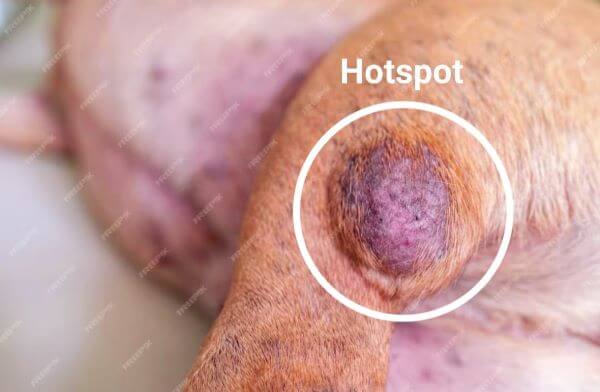Pecans are a delicious treat that most of us enjoy a lot. As caring dog owners, we also love to give our favorite treat to our beloved four-legged furry friends. But have you ever thought that sometimes our love can take the lives of our beloved pets? Such as Pecans, which are an enjoyable snack for humans are like a poison for dogs. Pecans contain compounds that can be toxic to dogs. We’ll learn why pecans are not good for dogs and what are the alternatives that we can give to our dogs. So, stay tuned.
Can Dogs Eat Pecans?
The answer is NO, dogs cannot eat pecans because pecans are toxic for dogs. Pecans contain many compounds that are dangerous for dogs and cause severe digestive problems if eaten accidentally. So, if you are eating pecans, do not share them with your dog.
Why Pecans are Toxic for Dogs?
Risk Of Digestive Problems:
The compound called juglone, which is also present in walnuts, is what makes pecans potentially dangerous to dogs. Dogs who consume juglone can experience
- Severe Vomiting
- Diarrhea
- Bloody stool
- Blockage in intestine
- Bloating and other gastrointestinal issues
Risk Of Pancreatitis:
Pecans are high in fat and calories. The digestive system of dogs is not able to digest high amounts of fat and calories. Dogs who consume pecans have the danger of developing pancreatitis. Pancreatitis is defined by inflammation of the pancreas which is very hazardous and causes symptoms like
- Tiredness
- Vomiting
- Diarrhea
- Reduction in hunger
- drowsiness
In cases when pancreatitis is suspected, it is imperative to seek quick veterinary assistance due to the rapid development of the disease and the possibility of dehydration.
Risk Of Mold Exposure:
Even pecans that appear to be fresh can be contaminated by dangerous fungi, especially Aspergillus and other molds that produce aflatoxin. Aflatoxin is a strong mycotoxin and can cause several neurological problems in dogs. The possibility of mold growth on pecans shows the need for caution when handling these apparently in good condition nuts.

Choking Hazards:
Other than all these potential hazards, these tiny pecans or their peels can stuck in the throat of a dog and cause choking hazards.
How Would You Know If Your Dog Has Pecan Toxicity?
It’s essential to keep an eye on your dog for different signs to identify possible pecan toxicity in dogs. Keep an eye out for any symptoms including
- Blood in the stool
- Excessive thirst
- Fever
- Seizures
- Tremors
- Vomiting
- Diarrhea
Doesnt matter how serious the problem is, If you suspect any possible symptoms ask for veterinary help immediately.
What to Do if Your Dogs Eat Pecans?
Whether your dog eats pecans in tiny or large amounts, it is strongly advised that you take him to the veterinarian as soon as possible. Even though a small number of pecans may not trigger an excessive number of problems, the potential dangers that are associated with pecans demand expert guidance to protect your dog’s health. Because our carelessness can take the lives of our loved ones.
Are Other Nuts Safe for Dogs?
While pecans are extremely hazardous for our beloved furry friends, there are alternative nuts that can be given to dogs. Cashews, peanuts, pistachios, and almonds are generally considered safe nuts for dogs. But always be cautious. Give your dogs a moderate amount of nuts and make sure to remove their coat due to their potential as choking hazards.
What Are Other Toxic Nuts For Dogs?
While some nuts are safe for dogs to consume in moderation, others can be toxic and should be strictly avoided. Here are some nuts that are known to be toxic to dogs:
Macadamia Nuts: Macadamia nuts can cause weakness, vomiting, tremors, and hyperthermia in dogs. In severe cases, ingestion can lead to paralysis. Even a small amount can be harmful.
Walnuts (Black Walnuts): Walnuts, especially black walnuts, can be toxic to dogs. They contain a toxin called juglone, which can cause gastrointestinal upset and neurological symptoms.
Bitter Almonds: Bitter almonds contain cyanide, which is toxic to both humans and dogs. While sweet almonds are generally safe, it’s essential to avoid any almonds that may be bitter or have an unusual taste.
What Alternative Snack Can I Give To My Dogs?
Ensuring the health and well-being of our canine companions involves offering alternatives that contribute positively to their overall nutrition. While peanut butter can be used occasionally, especially for administering medication, it’s crucial to explore a variety of healthy and safe snacks. Choices such as fresh fruits and vegetables, lean meats, and specially formulated dog treats provide a spectrum of nutrition while avoiding the potential risks associated with certain nuts.

FAQs about Dogs And Pecans
Nuts, despite being nutritious for humans, come with risks when used as treats for dogs. The high fat and calorie content in nuts can contribute to gastrointestinal issues, obesity, and pancreatitis. Additionally, some nuts may have dangerous coatings, such as cocoa, garlic, pepper, onion, or excessive salt. Thoroughly checking labels before offering nuts to dogs is essential to prevent potential health issues.
Although eating one pecan will not cause any health issues, it is important to be cautious. Try to keep pecans away from the dog’s approach. So, there would not be any possibility of an accident.
Yes, dogs can eat almonds and peanut butter. Dogs can also eat almonds and peanuts but there is a possibility of choking due to their coatings. It is better to give them peanut or almond butter. Ensure to give them almond or peanut butter that does not contain extra salt, sugar, or fat contents.
If your dog eats pecans, keep an eye on them for any signs of discomfort, vomiting, fever, blood in stool, or diarrhea. Immediately take your dog to the veterinarian if you notice any unusual behavior or other symptoms.
Conclusion:
The apparently non-toxic pecan, which is an enjoyable treat for humans, can be dangerous for dogs due to its toxicity and mold susceptibility. Choosing nutritious alternatives that enhance the general well-being of a dog and being aware of the dangers of particular diets are essential components of responsible pet ownership. Pet owners can ensure their four-legged companions live healthy and happy lives by considering a complete approach to doggy nutrition and demonstrating precaution regarding potential threats. Always consult a veterinarian to receive personalized guidance on your dog’s diet and nutritional needs.





